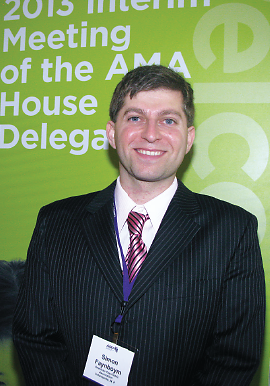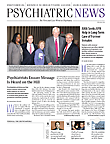Is a physician working in a postgraduate fellowship at an academic institution a “resident” or an independently practicing physician?
That’s a question the AMA’s Board of Trustees will take up at the request of the AMA House of Delegates. It has important implications for whether fellows are required to report transactions with pharmaceutical or medical-device manufacturers under the Physician Payment Sunshine Act. That’s the law that requires applicable manufacturers of drugs, devices, biologicals, or medical supplies covered under Medicare, Medicaid, or the Children’s Health Insurance Programs—as well as applicable group purchasing organizations—to report annually to the secretary of Health and Human Services certain payments or other transfers of value made to physicians and teaching hospitals.
At the same time, whether a fellowship trainee is considered a “resident” may also impact whether fellows can bill for services and whether the institutions they work for can be reimbursed.
A resolution brought to the House of Delegates at last month’s Interim Meeting in Washington, D.C., asks the AMA to clarify the definition of a “resident.” After debate in reference committee hearings (where reports and resolutions are aired before being considered by the entire House of Delegates) and later in the House, the resolution was referred to the Board of Trustees for a report back at the AMA’s Annual Meeting in June 2014.
The decision could be crucial. The AMA, as well as the Accreditation Council for Graduate Medical Education, has traditionally considered “residency” to encompass all the years of postgraduate medical training. But while “residents,” physicians undergoing the traditional supervised training in a specialty, are exempt from the reporting requirements under rules issued by the federal Centers for Medicare and Medicaid Services (CMS) for the sunshine act, “fellows”—those doing postgraduate training beyond the standard residency—are not exempted.
That means fellows could be liable for reporting many aspects of their training that might be subsidized by industry. “It leaves a gray area,” said Simon Faynboym, M.D., a PGY-2 psychiatry resident at Indiana University School of Medicine and the APA’s delegate to the AMA Resident and Fellow Section (AMA-RFS). “The AMA has one definition and CMS has another definition for the sunshine act. There are a lot of ways a fellowship might be subsidized that the fellow may not even be aware of, and without some clarification, it could create a lot of confusion, unnecessary reporting, or underreporting.”
Anita Chu, M.D., who is a fellow in the Yale Child Study Center at Yale University and the delegate from the American Academy of Child and Adolescent Psychiatry to the AMA-RFS, said research grants or travel to educational meetings or seminars that are partially underwritten by pharma could be reportable under the sunshine act. “I might have to report that or my name might go into a database somewhere as having accepted gifts from industry,” Chu told Psychiatric News.
“This has real relevance to me, and I will be directly affected by the outcome of any decision,” she said. “It would definitely make me more cautious. And I don’t think many fellows are aware of it.”
Julie Clements, J.D., M.P.P., deputy director for regulatory affairs in APA’s Department of Government Relations, confirmed for Psychiatric News that recent CMS statements indicate that fellows are not exempt from PPSA reporting.
“Generally, CMS has used the AMA’s definition of resident, which encompasses ‘fellows’ in some of their literature about GME [graduate medical education] and residencies, but with respect to the sunshine act specifically, CMS appears to be saying fellows are not exempt.”
But there is a flip side that complicates the issue, and it is one that caused the House of Delegates to refer the resolution to the Board of Trustees for a report—if fellows are counted as “residents,” they may not be able to bill for services.
Kenneth Certa, M.D., a member of the Section Council on Psychiatry and chair of the reference committee that heard testimony on the resolution, explained that residency training is funded in part by Medicare, and so the federal program does not reimburse residents for services provided. And like many policies under Medicare, it is followed by private insurance.
Most of the services provided by residents are closely supervised by attending physicians; the care provided is billed in the attending physician’s name. But Certa said the point of fellowship is to give additional training to physicians who could be independent practitioners, but who desire further training in a subspecialty.
Increasing autonomy, with less attending supervision, is an important part of this process; there is insufficient direct patient contact by the attending to justify billing in his/her name, he said.
Certa added that the formula by which programs get paid under the Graduate Medical Education component of Medicare is complicated, but generally Medicare pays for trainees through the fifth year of training; after that the hospital or institution must find another way to finance the training. The issue of how graduate medical education is funded is under intense scrutiny, as medical schools graduate increasing numbers, and residency slots stay fairly stagnant, he said. ■

